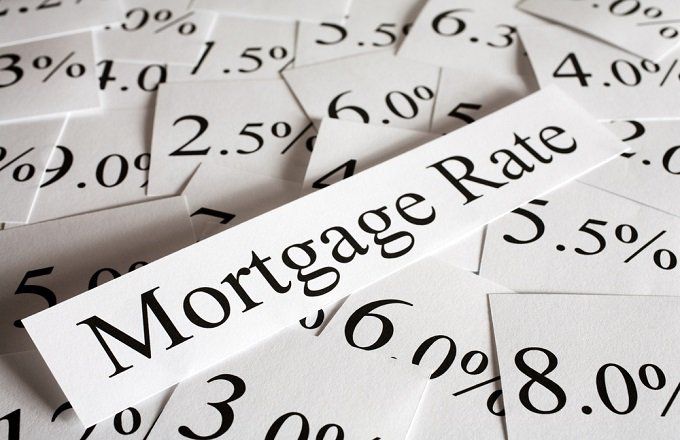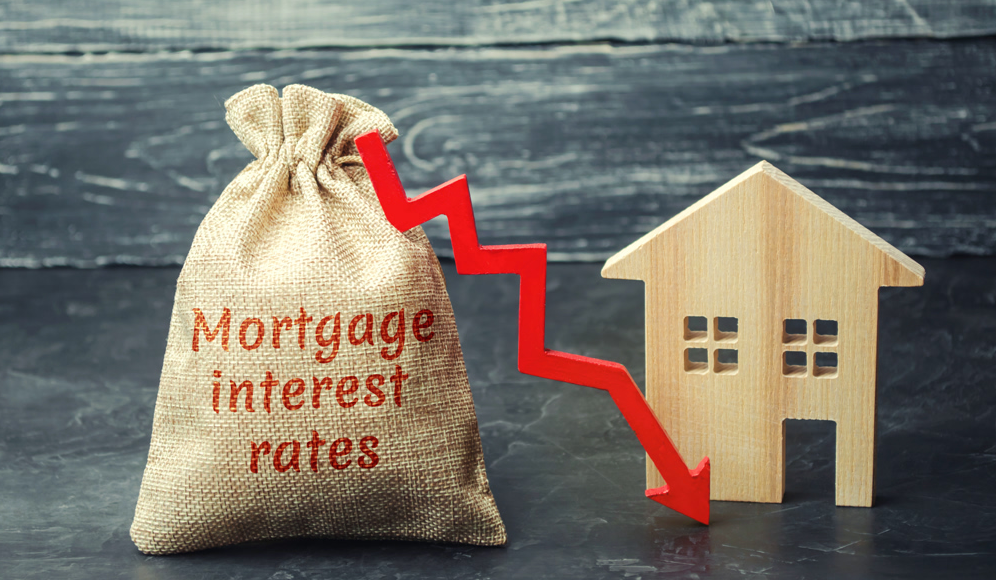Mortgage Rate is the interest that a homebuyers pay on a Home Loan. A lower interest rate makes for lower Mortgage Payments while a higher rate can make it more challenging to find an affordable monthly payment, or even get approved for a Mortgage Loan. Mortgage Rates are affected by market factors like inflation, the cost of borrowing, bond yields, and risks. Mortgage Rates are also affected by personal financial factors such as down payment, income, assets, and credit history.
Mortgage Rate is the rate of interest charged to a borrower on a Mortgage Loan. When buying a home, Mortgage Rate has a big impact on what homeowners will pay. A clear understanding of what a Mortgage Rate is and how to get a better number can help homebuyers navigate the process of shopping for a mortgage and possibly save money. A Mortgage Loan is a secured loan that enables homebuyers to raise funds by pledging their property. It is a Major financial commitment where severe consequences locking homebuyers into a spiral of payments.
Mortgage Rates are one of the primary factors considered by homebuyers looking to finance a new home purchase via Mortgage Loans. A Mortgage Rate or Mortgage Interest Rate or Interest Rate is part of what it costs to borrow money from the Mortgage Lender. Instead of paying the Mortgage Lender a lump sum, the Interest is paid as part of the monthly payment for the Home Loan. Mortgage Rate is one component of the figure that makes up borrowers’ Annual Percentage Rate (APR). For this reason, APR is typically higher than the Mortgage Rate.
What Is Mortgage Rate?
A Mortgage Rate is the percentage of interest that is charged for the Home Loan. The Mortgage Rates change with the economic conditions that prevail at any given time. However, the Mortgage Rate that a homebuyer is offered is determined by the Mortgage Lender and depends on the individual’s credit history and financial conditions, among other factors. The consumer decides whether to apply for a variable mortgage rate or a fixed-rate mortgage. A Mortgage Rate can be either fixed at specific interest rates or variable fluctuating with benchmark interest rates. A Variable rate Mortgage will go up or down with the fluctuations of national borrowing costs and also alter the Individual monthly payment for better or worse. However, the Fixed-Rate mortgage remains the same for the life of the Mortgage.
What Are the Types of Mortgage Rates?
The term, and length of time it takes to pay off the Mortgage Loan and the type of Mortgage, borrowers have affected their monthly Interest rates. There are two main types of Mortgage Rates:
- Fixed-Rate Mortgage: A fixed-rate mortgage provides the homebuyers with a consistent interest rate for the life of the Loan. This means that their monthly principal and Interest Payments will be consistent as well. A Mortgage Rate generally has higher interest rates than the initial interest rates on an ARM.
- Adjustable-Rate Mortgage: An Adjustable-rate Mortgage has a fixed introductory rate that says the same for a set period, such as five or seven years, and then may change periodically. This means the homebuyer’s monthly P&I payment could increase considerably after their introductory period is over.

How Is Mortgage Rate Determined?
Mortgage Interest Rates are determined by a variety of factors. Both the market and unique financial situation will have an impact on the Mortgage Rate. Here is a closer look at the home of the factors impacting the Mortgage Rate:
Personal Factors
- Credit Score: Many mortgage lenders have specific credit score requirements to issue a Mortgage Loan. A higher Credit Score can lead to a lower interest rate.
- Down Payment: A larger Down Payment leads to a lower loan balance. In most cases, a Larger Down Payment also leads to lower interest rates.
- Loan-to-Value Ratio (LTV): The size of the Loan compared to the value of the Home has an impact on the Mortgage Rates. Typically, a higher Loan-to-Value Ratio (LTV) leads to a higher interest rate.
- Occupancy: If a homebuyer planning to live in the Home as a primary residence, they will often find lower interest rates than someone purchasing the property as an Investment.
Market Factors
- The Federal Reserve: The Federal Reserve makes moves that have an impact on the entire family. When inflation is high, the Fed often raises the Federal Funds rate. As the Federal Funds Rate rises, the Mortgage Rate tends to rise.
- The Bond Market: If the Bond Market missteps, It can impact the Mortgage Rates.
- The secured overnight Finance Rate: When the rate rises, the Mortgage Rate tends to rise too.
- The Constant Maturity Treasury Rate: If shopping for Annual Percentage Rate (APR), Mortgage Lenders tend to look closely at the constant maturity treasury rate. Typically, the Mortgage Rate follows the movement of this rate.
- The State of the Economy: A strong economy with many home shoppers might see the Mortgage Rate rise due to competition.
- Inflation: High inflation tends to push Mortgage Rates higher.
How To Get a Good Mortgage Rate?
If a homeowners getting to know about how to get a Low Mortgage Interest Rate, then here are some strategies to consider:
- Save for a Large Down Payment: A larger down payment means a smaller mortgage loan, which can lead to lower interest rates. Also, the homebuyers might be able to avoid paying the Mortgage Insurance, in case the Down Payment is large enough.
- Improve the Credit Score: Homebuyers with higher credit scores can often tap into the lower Interest Rates.
- Reduce the Debt-to-Income Ratio (DTI): The homebuyers have to try to pay down some of their debt, so less of their income is going to that. A lower Debt-to-Income Ratio (DTI) often leads to lower interest rates.
- Purchase the Mortgage Points: The homebuyers have to prepay some of the interest on their Mortgage Loan by purchasing points.
- Talk with a Home Loan Expert: A home loan expert can help homeowners lock in the best rate for their situation.
How To Change Existing Mortgage Rates?
If homebuyers face difficulty meeting their monthly Payments or simply want to take advantage of current lower Mortgage Rates, then they may be able to change their Mortgage Rate. It is most important to note that these options may also change other terms of their Mortgage such as:
- Refinancing: Loan Refinancing is the most common way to change the Mortgage Rate. Refinancing means the homebuyers are replacing their loan with a new one. It can help lower their monthly payments and possibly reduce their total payment amount.
- Loan Modification: The Mortgage modification programs provide opportunities for homeowners to change their Mortgage Terms.
Mortgage Rate is one of the many factors that affect the monthly Mortgage Payments and the total amount the homebuyers pay for their Home.
Frequently Asked Questions (FAQs)
Question 1: Are the Mortgage Rates the same for all the Mortgage Lenders?
Answer: Mortgage Rates vary from lender to lender because mortgage lenders have different appetites for risk and different overhead costs.
Question 2: How Can I estimate My Mortgage Rate?
Answer: You can view today’s Mortgage Interest Rates to see where you might fall. If you are not sure what type of Mortgage Loan you would qualify for, consider getting the initial approval to determine whether you fall. If you know the credit score and approximate LTV Ratio, you can estimate your interest rate using today’s Mortgage Rates.
The Bottom Lines
A mortgage Rate has a direct impact on the monthly mortgage payments. When shopping for a home, don’t forget to shop around for the best mortgage rates too. If the homebuyers are ready to dive into homeownership, then start the mortgage approval process today. A mortgage rate is an interest that a homebuyer will pay to finance the purchase, they will get the best rate available if they have a very good credit rating and a financial history that proves they can afford to repay the loan.
